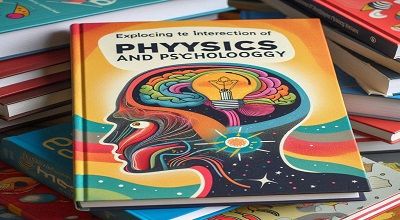Psychological Perspectives
Incorporating psychological perspectives into a physics curriculum can enhance students’ understanding and engagement with the subject. By considering the cognitive and emotional aspects of learning, educators can create a more holistic and effective learning experience. Here are some ways to integrate psychological perspectives into a physics curriculum:
Constructivist Learning Theory
- Emphasize hands-on, inquiry-based learning experiences. Allow students to actively explore and discover principles of physics through experiments and problem-solving activities.
- Encourage collaborative learning and group discussions. Social interaction can enhance understanding and help students construct their own knowledge.
Cognitive Load Theory
- Break down complex physics concepts into smaller, more manageable chunks. Present information in a way that minimizes cognitive load, allowing students to focus on understanding one aspect at a time.
- Provide scaffolding and support as students progress through difficult topics. Gradually remove support as students gain confidence and mastery.
Motivation and Interest
- Connect physics concepts to real-world applications to highlight their relevance. Demonstrate how understanding physics can lead to advancements in technology, medicine, and other fields.
- Incorporate interdisciplinary activities that demonstrate the interconnectedness of physics with other disciplines, such as psychology, biology, and engineering.
Intrinsic Motivation
- Foster a sense of curiosity and intrinsic motivation by allowing students to explore topics of personal interest within the broader physics curriculum.
- Provide opportunities for self-directed learning, such as independent research projects, to encourage a deeper understanding and appreciation for the subject.
Mindset and Beliefs
- Encourage a growth mindset by emphasizing that intelligence is not fixed and that learning and improvement are possible through effort and perseverance.
- Address stereotype threat by promoting a diverse and inclusive learning environment where all students feel capable and valued.
Emotional Intelligence
- Acknowledge the emotional aspects of learning physics. Recognize that some students may experience anxiety or frustration, and provide support mechanisms such as open communication, peer mentoring, or mindfulness practices.
- Connect physics concepts to awe-inspiring phenomena to evoke a sense of wonder and fascination.
Historical and Cultural Context
- Explore the historical development of physics and the cultural context in which scientific theories emerged. This can help students understand the human side of science and appreciate the evolution of scientific thought.
Assessment and Feedback
- Provide constructive and timely feedback that focuses on the learning process rather than just the final result. This can help build students’ self-efficacy and resilience in the face of challenges.
Summary
By integrating these psychological perspectives into a physics curriculum, educators can create a more supportive and engaging learning environment, fostering a deeper understanding and appreciation for the subject among students.

